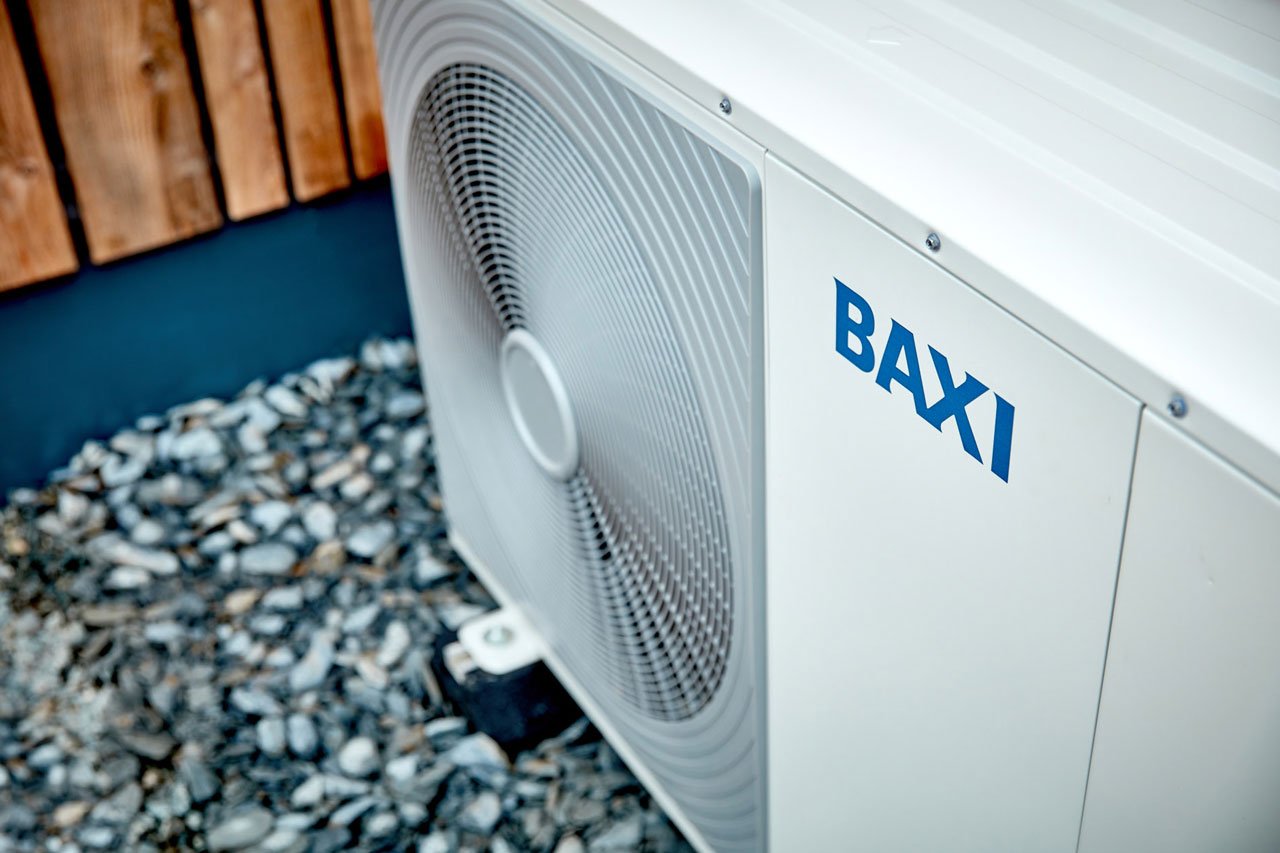Air source heat pumps explained
Air source heat pumps are innovative systems that extract heat from the air outside to warm your home. They consist of an outdoor unit that captures heat and Air Source Heat Pump controller that you will place inside your house.
If you are using an Air Source Heat Pump only, you will need to install a domestic hot water cylinder as well in your house. Using the refrigeration cycle, these pumps can extract warmth even in colder temperatures.
Baxi’s ASHPs works at -25℃. The outdoor unit draws in air, causing the refrigerant to evaporate and absorb heat, which is then compressed to increase temperature before transferring it indoors.
Advantages of air source heat pumps
Exploring the advantages of heat pumps reveals numerous benefits of air source heat pumps.
Efficiency
One of the key benefits of air source heat pumps is their efficiency. They focus on transferring heat rather than generating it, allowing them to produce more heat energy than the electricity they consume.
Baxi’s Air Source Heat Pumps can run at up to 530% efficiency. This means that for every kilowatt of energy created by a boiler, 5.3kW is created by an ASHP. This efficiency translates to lower energy bills and a reduced carbon footprint, making air source heat pump heating a sustainable choice for your home.
Saving on energy bills
The financial benefits of air source heat pumps are noteworthy.
Their efficient operation means substantial savings on energy bills over time. As energy prices continue to rise, the cost-effectiveness of ASHPs becomes increasingly appealing as a long-term investment. Their straightforward installation process adds to their attractiveness, offering a practical solution that fits various property types.
Environmental impact
A significant advantage is their low environmental impact.
By using renewable energy from the air, ASHPs reduce carbon emissions compared to conventional heating systems. This eco-friendly feature helps homeowners meet sustainability goals and comply with regulations aimed at reducing carbon footprints.
Limitations of an air source heat pump
Despite their benefits, it’s important to consider the limitations with an air source heat pump:
Cost vs efficiency
Gas is 3 times cheaper than electricity, a coefficient of performance (COP) under 3 would mean that running cost would be a little more expensive than a boiler. It would still be able to provide the warmth (following the heating operative limits).
Having said that, even in extreme conditions, an Air Source Heat Pump is still much more performant than a boiler. For instance, a coefficient of performance (COP) of 2.35 means a 235% efficiency that a boiler would never provide (Boiler cannot even reach 100%).
Installation cost
The initial installation cost of ASHPs can be a significant consideration. While they offer long-term savings, the upfront expense may be steep. Homeowners should weigh the heat pump advantages and disadvantages to decide if it fits their budget.
However, there are government grants available to help with the installation cost. Take a look at the grants and find an installer.
Space considerations
Outdoor space is necessary for installation, which may not be feasible for all properties. You must also consider clearance areas around the unit to have enough air for efficient operation. Evaluating available space is essential before deciding on air source heat pump installation.
You also need to consider the indoor space to house the domestic hot water cylinders.
Government incentives or grants for an air source heat pump
The UK government often provides schemes to promote renewable energy, including ASHPs. Exploring these opportunities can help offset initial costs, making the switch to air source heat pump heating more financially viable.






